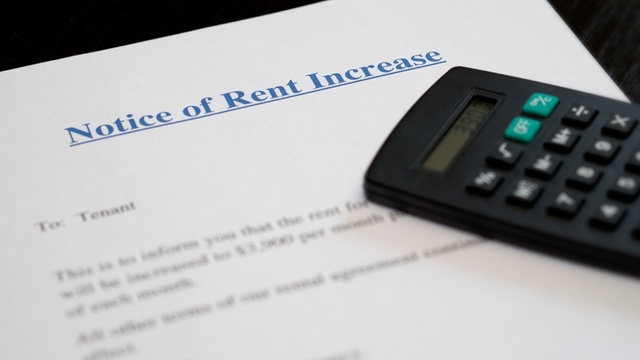Demand for rental properties has seen rent prices go up. If your landlord wants to increase your rent, make sure you’re aware of your rights before agreeing to anything.
Can my landlord increase my rent?
Yes, landlords can increase your rent, but they have to follow certain rules.
If you’ve got a fixed-term contract they can only increase it in the following situations:
- at the end of the fixed term, before the contract is renewed
- if there is a rent increase clause in the current contract - the clause will specify when they can do it and by how much
If your fixed-term contract comes to an end and moves to a rolling contract, then the rent can only be increased in the following situations:
- you agree to a rent increase
- if there’s a clause in the previous contract that specifies what happens when the tenancy changes to a rolling contract
- the landlord serves a section 13 notice
If the fixed term hasn’t ended yet and there’s no clause in the contract, the only way they can increase the rent is with your permission.
What is a section 13 notice?
If a tenant and landlord can’t agree on a rent increase, then the landlord can issue a section 13 notice to increase the rent. This can only be done during rolling contracts, and cannot be issued for the first twelve months of any tenancy. Section 13 notices can be served once a year.
A section 13 notice must be valid, meaning it has to be signed by the landlord. It should also contain no mistakes, give you the correct amount of notice, and be issued on the correct form - you can see the form here.
How much can a landlord increase rent?
When a landlord increases rent it must be fair and realistic. Check that the proposed new rent is in line with local prices, and is fair for the condition of the property. You can use property portals such as Rightmove to compare rental prices in your area.
How much notice does my landlord need to give for a rent increase?
This depends on the type of tenancy you have. If you’re on a rolling week-to-week or month-to-month tenancy then the landlord must give you at least one month’s notice. If you have a contract for one year, they have to give you at least six months’ notice.
Before signing any contract, check for rent increase clauses.
What can I do if my landlord increases the rent?
If you don’t agree with the proposed rent increase try and speak to your landlord to see if you can reach an agreement. There are some steps you can take first that will help you:
- check your tenancy agreement so you know where you stand legally - is there a rent review clause in there?
- check that the landlord has given you the right amount of notice
- if you receive Universal Credit, let them know as soon as possible because they might be able to increase your benefit amount
- spend some time researching local rent prices to determine if the increase is fair
- propose a different figure if you feel the price isn’t fair, the landlord might accept a lower figure especially if you’ve previously been a good tenant
- keep communication with your landlord professional and in writing so you have a record of what’s been said.
If you need help with any of these steps then contact the Citizens Advice Bureau.
How can I challenge a rent increase?
If you’ve been unable to reach an agreement with the landlord, there are ways you can challenge the increased rent. It’s important to act before the date of the proposed rent increase if you’re unhappy. If you say nothing, or start to pay the new rent, then this is taken as a sign of your acceptance.
If you were issued a section 13 notice you can challenge it:
- if the increase isn’t in line with local rental prices
- if the landlord hasn’t carried out repairs due on the property
- if you haven’t yet paid the increased amount.
Challenges can be made to the First-Tier Tribunal, a free service available to tenants. The tribunal’s made up of two or three professionals who decide if the rent increase is fair. If they decide it is then you’ll have to pay it, but if they decide it isn’t then your rent won’t go up. You’ll need to:
- fill in this form and send it via post to arrive before the proposed date of the rent increase
- collect local rental information to show why the rent increase is unfair
- show evidence of any improvements you’ve made to the property and/or any repairs outstanding by the landlord
- make copies of all relevant information, as you’ll need to send it to the tribunal and your landlord when asked. You should also keep a copy for yourself.
Make sure you believe the rent increase is unfair before challenging it. A tribunal can take up to ten weeks to make a decision. In that time you may need to let them inspect the property, and if they agree with the landlord then the increase will be backdated to the date on the section 13 notice. In some cases the tribunal may increase the rent to more than the landlord had asked for, but this is rare.
Disclaimer: We make every effort to ensure content is correct when published. Information on this website doesn't constitute financial advice, and we aren't responsible for the content of any external sites.








